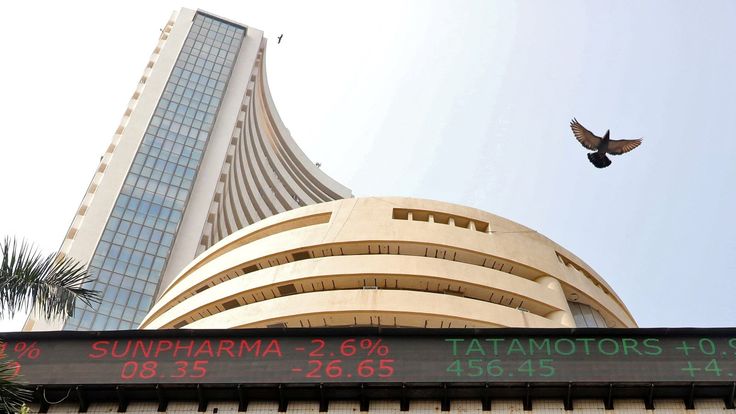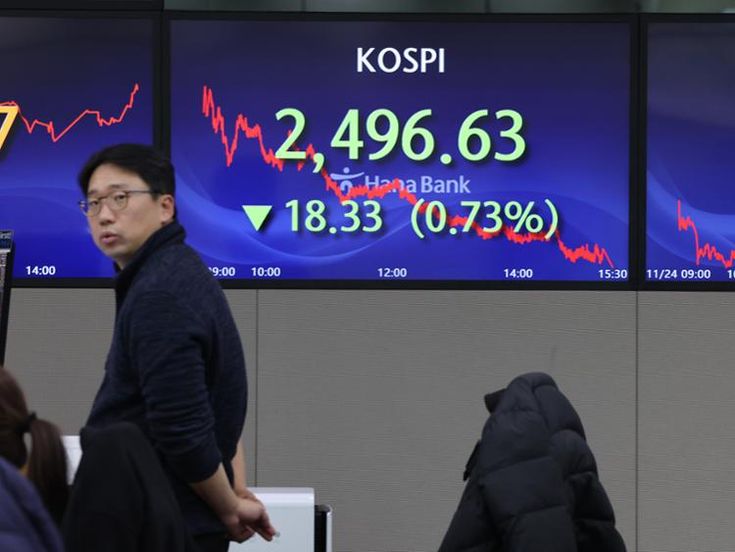Asian stock markets have exhibited a mix of growth and volatility due to global economic conditions, government policies, and geopolitical influences. As major economies in the region navigate inflation, interest rates, and trade relations, investors are closely monitoring stock movements and market trends. The region’s economic diversity, coupled with rapid advancements in technology and infrastructure, continues to shape its financial landscape. Additionally, factors such as demographic changes, shifts in supply chain dynamics, and foreign direct investments play a crucial role in the stock market performance of various Asian economies.

Japan – Nikkei 225
The Nikkei 225 has reached multi-decade highs, driven by a strong performance in technology, automobile, and export-oriented companies. A weaker yen has helped boost exports, making Japanese stocks attractive to global investors. The Bank of Japan’s monetary policy shifts, including discussions around potential interest rate hikes, have influenced stock market movements. Investors are also watching corporate governance reforms aimed at improving shareholder value, which could further boost market sentiment. The continued expansion of Japan’s semiconductor and robotics industries positions the country as a key player in the global tech space. Additionally, Japan’s government has focused on revitalizing domestic demand, enhancing productivity, and supporting sustainable energy initiatives, which are likely to contribute to long-term economic stability and stock market growth.

India – Sensex & Nifty 50
India’s stock markets, Sensex and Nifty 50, have been among the best performers globally, fueled by strong GDP growth, foreign institutional investments, and the rise of technology and financial sectors. The Indian government’s focus on infrastructure, digitalization, and manufacturing has attracted long-term investors. The Reserve Bank of India’s (RBI) monetary policies, including managing inflation and interest rates, continue to drive market sentiment. Additionally, India’s booming startup ecosystem, supported by government initiatives like “Make in India” and “Digital India,” has added to the market’s resilience. The expansion of the middle class and increasing consumer spending are also driving growth in sectors such as e-commerce, retail, and fintech. Moreover, India’s ambitious plans for renewable energy and electric mobility are expected to drive further investments and sectoral growth, reinforcing the country’s attractiveness to both domestic and international investors.

China – Shanghai Composite & Hang Seng Index
The Shanghai Composite has faced challenges due to China’s property sector crisis, regulatory crackdowns, and a slowdown in economic growth. However, government stimulus measures, including policy support for key industries such as renewable energy, artificial intelligence, and technology, have provided some stability. The People’s Bank of China has taken measures to ensure liquidity in the market, aiming to support economic recovery. China’s shift towards domestic consumption and self-reliance in critical industries, such as semiconductor manufacturing and biotechnology, is expected to shape future market trends.
The Hang Seng Index in Hong Kong has been volatile, reflecting uncertainties in Chinese economic policies and global trade tensions. Concerns over capital outflows and regulatory scrutiny have affected investor sentiment. However, China’s push toward technological self-sufficiency and innovation in sectors like electric vehicles (EVs) and advanced manufacturing could create long-term growth opportunities. Additionally, the Hong Kong government’s strategic efforts to strengthen its role as a global financial hub, including policies to attract foreign companies and improve market transparency, could help restore investor confidence.

South Korea – KOSPI
The KOSPI index has been impacted by global semiconductor demand, given South Korea’s dominance in the chip manufacturing sector. Tech giants like Samsung and SK Hynix have played a crucial role in shaping market performance. Investor confidence has been influenced by trade relations with the U.S. and China, as well as domestic economic policies supporting innovation and technological advancements. South Korea’s push toward AI, 5G, and green energy has the potential to drive long-term growth in its equity markets. Additionally, the South Korean government has been proactive in fostering innovation through tax incentives and R&D investments, particularly in high-tech industries, which could contribute to sustainable economic expansion and enhance investor confidence.
Other Major Markets
Taiwan’s TAIEX is heavily reliant on semiconductor exports, with growth tied to the performance of chip manufacturers like TSMC. The global demand for AI-driven processors and high-performance computing has positioned Taiwan as a major player in the tech supply chain. Taiwan’s government is also investing in next-generation technologies, such as quantum computing and 6G, which could further bolster its economic position.
Singapore’s Straits Times Index (STI) is a relatively stable market, driven by banking, real estate, and transportation sectors. Its strong financial ecosystem, low taxation policies, and status as a global trade hub continue to attract investors. Singapore’s emphasis on sustainable finance, fintech innovation, and smart city development has made it an attractive destination for global capital flows.
Indonesia’s Jakarta Composite Index (JCI) is emerging as a strong performer due to a booming digital economy and foreign investments. Government initiatives supporting e-commerce, fintech, and infrastructure development have enhanced Indonesia’s growth potential. The country’s rich natural resources, including nickel, which is crucial for EV battery production, have also drawn foreign interest. Furthermore, Indonesia’s efforts to enhance financial inclusion, digital banking, and renewable energy production are expected to support long-term economic stability and market performance.
Key Market Drivers in Asia
- Technology Growth: Asia leads in semiconductor production, AI development, and e-commerce, driving stock market performance. The integration of emerging technologies such as blockchain, IoT, and cloud computing continues to reshape industries and investment opportunities.
- Interest Rate Policies: Central banks’ decisions on interest rates impact inflation, currency stability, and investor confidence. Policies aimed at controlling inflation while fostering economic growth are being closely monitored across the region.
- China’s Economic Recovery: As the second-largest economy, China’s policies and economic health have far-reaching effects on regional markets. The effectiveness of government stimulus measures and regulatory shifts will be key determinants of investor sentiment.
- Geopolitical Risks: Trade tensions, regulatory policies, and regional conflicts contribute to market fluctuations. The evolving U.S.-China trade dynamics, territorial disputes, and supply chain realignments remain crucial concerns for investors.
- Foreign Investment Trends: Strong inflows into emerging Asian markets indicate global confidence in long-term regional growth potential. Governments across Asia are implementing policies to attract foreign capital, such as tax incentives, improved regulatory frameworks, and investment-friendly economic zones.
Future Outlook for Asian Stock Markets
Growth in technology, renewable energy, and infrastructure sectors is expected to drive future gains in Asian markets. However, investors need to be cautious about inflationary pressures, regulatory shifts, and global economic slowdowns, which could introduce volatility. The continued integration of digital finance, green energy transitions, and sustainable investment frameworks is likely to influence stock market trajectories across the region.
A diversified investment strategy focusing on strong economies like India and Japan, while remaining cautious with China’s evolving policies, can help mitigate risks. The rising adoption of digital banking, fintech, and green energy investments is expected to provide new opportunities for investors in the coming years. Additionally, increased regional trade cooperation through initiatives like the Regional Comprehensive Economic Partnership (RCEP) could further enhance economic growth and market stability in Asia.
Asian stock markets remain dynamic and offer significant opportunities for investors. While uncertainties exist, strong fundamentals, technological advancements, and government initiatives continue to support long-term growth. Investors should remain informed and adopt a well-balanced strategy to navigate market fluctuations effectively.
Related Blogs: https://ciovisionaries.com/articles-press-release/

